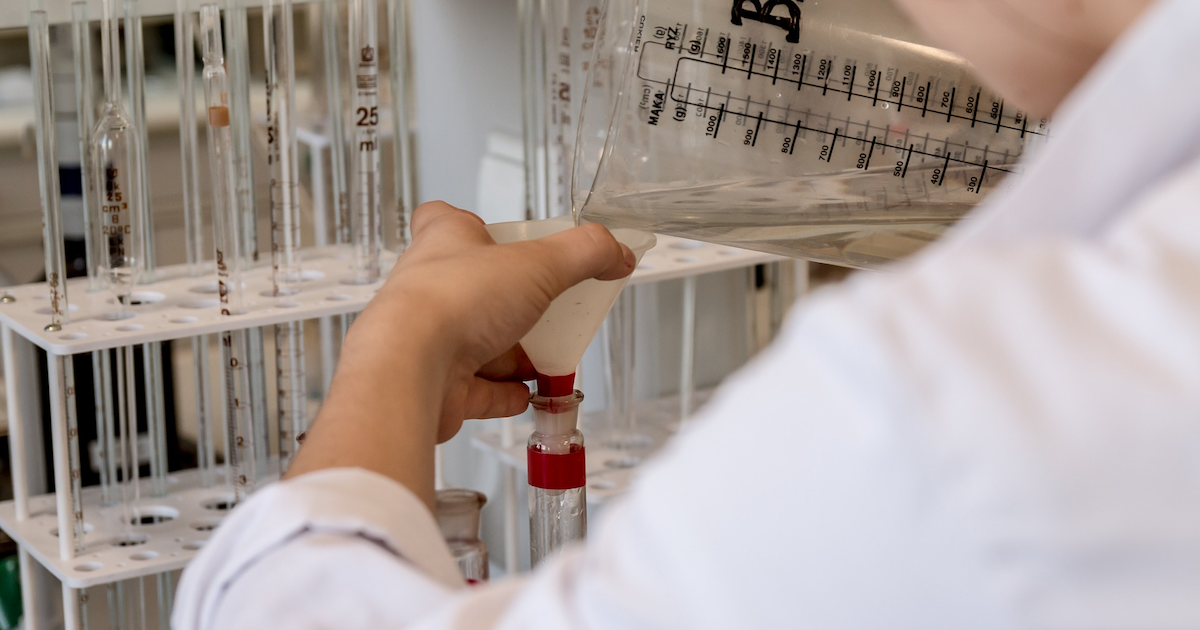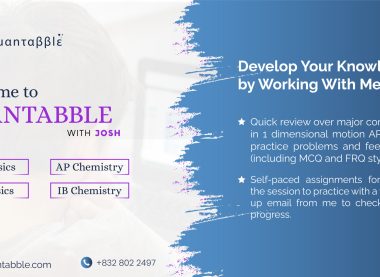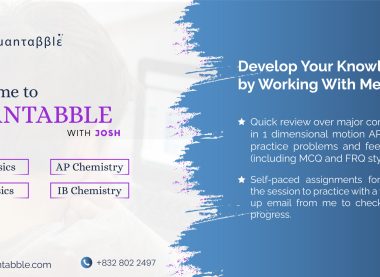One Month AP Chemistry Study Guide
Are you planning on taking the upcoming AP Chemistry exam, but worried that your chemistry knowledge has gotten a little flabby around the midsection? Don’t worry; we have just the thing to get your mind in the right kind of form for the exam. Like any good 30-day workout routine designed to get your body in shape, we have created a daily study plan that will help tone your understanding of atomic structure, beef up your knowledge of how chemicals react, and strengthen your comprehension of intermolecular attraction. This AP study guide is designed to give you everything you need to review and learn how to score a 5 on the AP Chemistry Exam.
A Comprehensive One-Month AP Chemistry Study Guide
Taking on a one-month trip to pass the AP Chemistry test may appear to be a daunting task, but with a well-structured study plan, you can manage the subject’s complexity and approach the exam confidently. This thorough study guide is intended to give you with a step-by-step roadmap, ensuring that each day of your preparation leads to a better comprehension of essential ideas, effective problem-solving abilities, and familiarity with the test format.
This book covers everything from diagnostic evaluations to concentrated topic studies, hands-on laboratory practice, and exam simulations. Each week is carefully planned to maximize your learning capacity, emphasizing both depth and breadth of information. So impose up, set aside any fears, and let’s go on a month-long adventure to not just pass but succeed on the AP Chemistry exam. Your success is waiting for you; let’s delve into the realm of AP Chemistry preparation! Preparing for the AP Chemistry exam in just one month may seem challenging, but with a strategic study plan, it’s entirely achievable. This guide breaks down a step-by-step study schedule, emphasizing key topics, resources, and practice strategies to ensure success on exam day.

Week 1: Diagnostic and Topic Familiarization
Day 1-2: Diagnostic Test
- Take a full-length AP Chemistry practice test to identify strengths and weaknesses.
- Analyze results to pinpoint specific content areas requiring focus.
Day 3-5: Topic Overview
- Review foundational concepts: atomic structure, periodic trends, chemical bonding.
- Familiarize yourself with the big ideas outlined in the AP Chemistry Course and Exam Description (CED).
Week 2: In-Depth Conceptual Review
Day 6-8: Atomic Structure and Bonding
- Dive into atomic structure, electron configuration, and chemical bonding.
- Utilize textbooks, online resources, and Khan Academy for detailed explanations.
Day 9-11: Thermodynamics and Gases
- Focus on thermodynamic principles, gas laws, and intermolecular forces.
- Practice problems to reinforce understanding.
Day 12-14: Kinetics and Equilibrium
- Explore reaction kinetics, chemical equilibrium, and Le Chatelier’s principle.
- Engage in practice questions and explore real-world applications.
Week 3: Laboratory Skills and Quantitative Problem Solving
Day 15-17: Laboratory Techniques
- Review common laboratory techniques and procedures.
- Understand experimental design and data analysis.
Day 18-20: Stoichiometry and Quantitative Analysis
- Master stoichiometry, mole concepts, and quantitative analysis.
- Solve a variety of problems to strengthen problem-solving skills.
Day 21-22: Acid-Base Chemistry
- Explore acid-base theories, pH calculations, and buffer systems.
- Practice titration problems and equilibrium involving acids and bases.
Week 4: Final Review and Practice Tests
Day 23-25: Electrochemistry and Redox Reactions
- Cover electrochemical cells, redox reactions, and Faraday’s laws.
- Engage in hands-on activities or virtual simulations for reinforcement.
Day 26-28: Final Comprehensive Review
- Review all major topics, emphasizing weak areas.
- Take practice exams to simulate exam conditions and gauge progress.
Day 29-30: Exam Strategies and Relaxation
- Familiarize yourself with the exam format, timing, and question types.
- Practice time management during a simulated exam.
- Incorporate relaxation techniques and ensure a good night’s sleep before the exam.

Additional Tips for Success:
Planning for an AP Chemistry examination in one month might be difficult, but with determination and a sound study strategy, it is feasible to earn a high grade. Here are some recommendations to help you prepare properly.
1. Utilize Multiple Resources:
Combine textbooks, online platforms (Khan Academy, College Board resources), and review books for a comprehensive understanding.
2. Flashcards for Quick Review:
Create flashcards for key concepts, equations, and definitions to facilitate quick review.
3. Collaborative Study Sessions:
Join study groups or online forums to discuss concepts and solve problems collaboratively.
4. Simulate Exam Conditions:
Mimic exam conditions during practice tests to enhance familiarity and reduce stress on exam day.
5. Stay physically and mentally healthy:
Prioritize self-care, maintaining a healthy diet, regular exercise, and adequate sleep to optimize cognitive performance.
6. Seek Clarification:
Don’t hesitate to ask teachers, peers, or online communities for clarification on challenging concepts.
7. Reflect and Adjust:
Regularly assess your progress and adjust your study plan accordingly. Focus on weak areas for targeted improvement.
8. Create a study schedule:
Plan your study sessions ahead of time to ensure that you cover all of the exam subjects. Make sure to set up adequate time to go over tough topics and practice problem solving.
9. Review the course material:
Review your class notes, textbook, and other materials to refresh your memory on the fundamental concepts and principles of chemistry.
10. Practice solving problems:
Practice addressing inquiries from previous AP Chemistry examinations and other resources. This will help you get accustomed with the kinds of problems that will be asked on the test and enhance your problem-solving abilities.

11. Take practice exams:
Take practice examinations to check your knowledge and find areas for improvement. Using the feedback from these examinations, alter your study strategy accordingly.
12. Seek help when needed:
If you are having trouble understanding a certain topic or idea, don’t be afraid to contact your teacher or a tutor for help.
This one-month AP Chemistry study guide will help you learn crucial concepts in a methodical manner, practice successfully, and build the skills required for success on the AP Chemistry test. Remember, consistency and strategic attention is crucial to learning the content within a restricted timeframe. Remember to take pauses and stress self-care during your study sessions. Good luck with your preparations!






